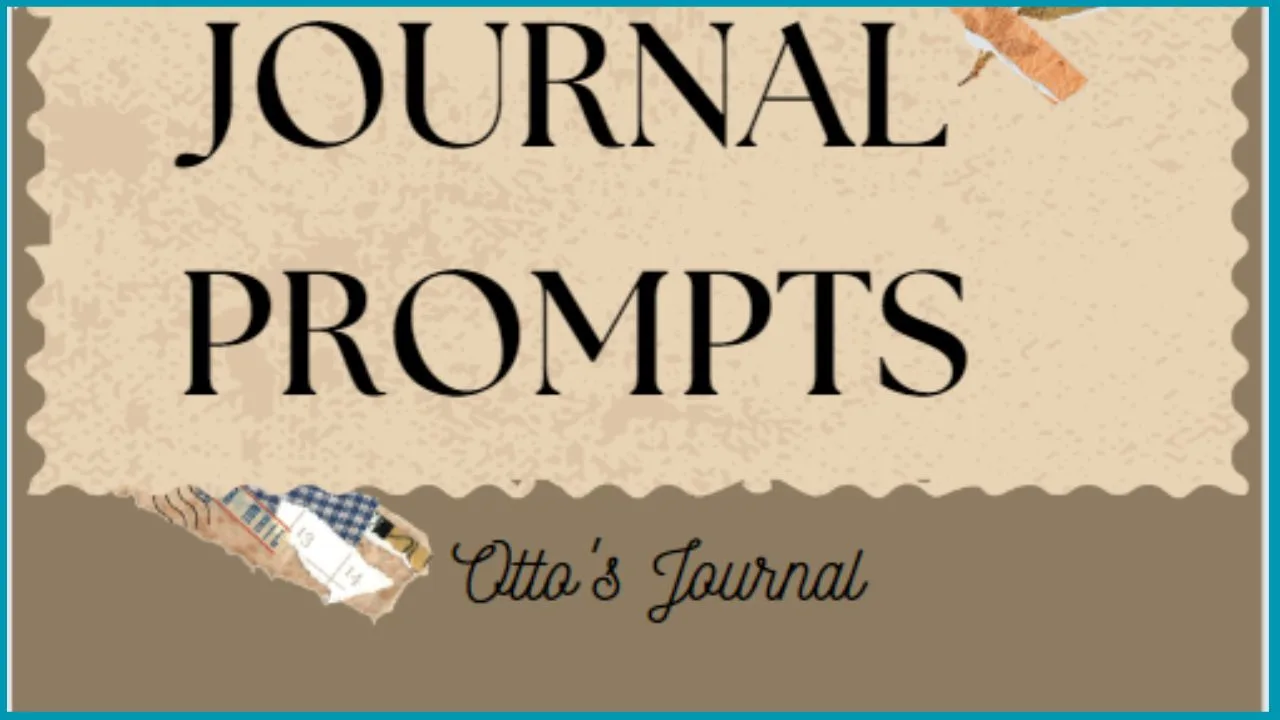Journaling prompts can be used to help you get into the habit of journaling, overcome writer’s block, or when you need an extra spark of creativity. They are also great for helping to process your thoughts and feelings about a particular situation or experience. But when should you use journaling prompts? Here are some journaling ideas for when you should use journal prompts.
When should you use journaling prompts?
When You Need Motivation
Journal writing prompts can help you stay motivated and focused on your goals. They can also help you to reframe negative thoughts and feelings into more positive ones.
When You Need a Creative Outlet
Writing down your ideas or thoughts in response to a journal prompt can be an excellent way to express yourself creatively without the fear of judgment.
When You Want to Reflect
Writing down your thoughts and feelings about a particular experience or event can help reflect on the situation.
When You’re Feeling Stuck
Prompts can help you come up with new ideas or give you the motivation to take action on something difficult to tackle.
When You Feel Overwhelmed
Writing down your thoughts and feelings can help you to make sense of the situation, express yourself, and find a solution.
When You Want to Track Your Progress
Journaling prompts can be great for tracking progress on projects or goals. It can also be used as a tool to remind yourself of what you have achieved so far.
When You Need a Clear Mind
Writing down your thoughts and feelings can be an excellent way to clear your mind of clutter and gain clarity about situations.
When You Want to Connect With Yourself More Deeply
Gratitude journal prompts can help you explore your inner self through self-reflection and build a stronger connection with yourself.
When You’re Experiencing Stress or Anxiety
Writing down your thoughts and negative emotions can be an effective way to manage stress, anxiety and improve physical and mental health.
When You Want to Celebrate Yourself
Journaling is a great way to celebrate your successes, no matter how small. It’s also a wonderful opportunity to practice self-compassion and gratitude for all that you have achieved.
40 simple prompts for journaling
1. What do I value most in daily life?
2. What is something that has been on my mind lately?
3. What was the best thing that happened today?
4. Describe a present moment of joy or peace you experienced.
5. How did I show kindness to myself today?
6. If I could choose one area of my life to focus on, what would it be?
7. What positive things make me feel deeply fulfilled and content?
8. How can I stay connected to my deepest values and purpose during difficult times?
9. What are some small steps I can take today toward achieving my goal?
10. What is something that I am grateful for today?
11. What are some of the biggest lessons I’ve learned in my personal and professional life so far?
12. If I could go anywhere in the world right now, where would it be?
13. How can I show more appreciation and love to myself and others?
14. What has been difficult for me to accept?
15. What are some of the things that make me feel alive and excited about life?
16. How can I remain open and curious about life, even in tough times?
17. What do I need to let go of to move forward?
18. How can I stay true to myself while also being open to new experiences?
19. What is something that I am proud of accomplishing?
20. What does success mean to me?
21. What small habit can I start today that will have a positive impact on my life?
22. How can I practice self-care amid a busy day or week?
23. How can I use my unique gifts and talents to help others?
24. What is the best way for me to connect with nature daily?
25. How can I be more mindful in my everyday life?
26. What new skill or hobby would I like to learn this week/month/year?
27. What is something that has surprised me recently?
28. What can I do to find balance in my life right now?
29. How can I use my voice to make a positive impact in the lives of others?
30. What is something that brings me joy and peace?
31. What are some creative solutions for the challenges I am facing in life?
32. What can I do today to make a meaningful difference in my own life?
33. How can I use this time to explore and grow as a person?
34. What is something that I appreciate about myself?
35. What are some of the biggest lessons I have learned from my mistakes?
36. How can I be more compassionate to myself and others?
37. What are some of the positive changes that I am making in my life right now?
38. How can I bring more passion and enthusiasm into my everyday life?
39. What has been challenging for me lately, and how can I work through it?
40. What is something that I am looking forward to shortly?
How to use journaling prompts effectively?
Give Yourself Time
When using journaling prompts, it’s important to give yourself enough time to think about and write down your thoughts and feelings.
Don’t rush the process, take some deep breaths before you start journal writing, and spend a few minutes allowing your thoughts to flow freely without judgment.
Find a Quiet Space
It’s helpful to find a quiet, comfortable place where you can focus on your journaling. This could be in your room, a study area, or even outside in nature.
Start With One Prompt
Don’t try to tackle too many prompts at once. Pick one prompt that resonates with you the most and starts there. Once you’ve finished writing about that prompt, move on to the next one.
Get Creative
Let your imagination flow! You don’t need to stick to just writing words; you can also get creative and draw or doodle in response to the prompts.
Keep It Positive
Try to focus on positive thoughts and feelings while writing in your journal. This helps to create an atmosphere of positivity and personal growth.
Set A Timer
It’s helpful to set a timer for yourself when using creative writing prompts; this ensures that you don’t get too caught up in the process and lose track of time.
Let Yourself Go
Don’t be afraid to let your thoughts and feelings flow freely when you are expressive writing. Don’t worry about grammar or structure, just write down whatever comes to mind without judgment.
Read Back What You Wrote
When you are done writing, take some time to read back what you wrote. This helps you to reflect on what you wrote and gain insight into yourself and your thoughts.
Bottom Line
Journaling is an effective way to gain clarity, manage stress and anxiety, explore your inner self, and practice self-compassion.
With the help of journaling prompts, it can be easier to start writing about your thoughts and feelings.
To make sure that you’re getting the most out of this process, give yourself time, find a quiet space, set a timer, keep it positive, and let yourself go. Don’t forget to read back what you wrote afterward.
Journaling practice can be incredibly rewarding if done thoughtfully and consistently. Taking the time to discover your thoughts and feelings through thoughtful writing can help bring clarity and insight into your life. So don’t be afraid to pick up a pen and start exploring!





